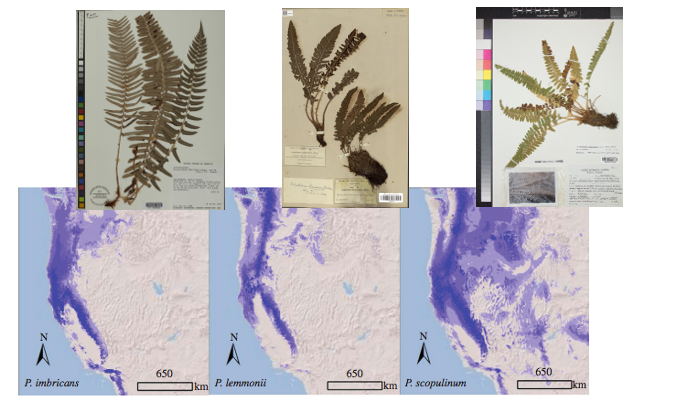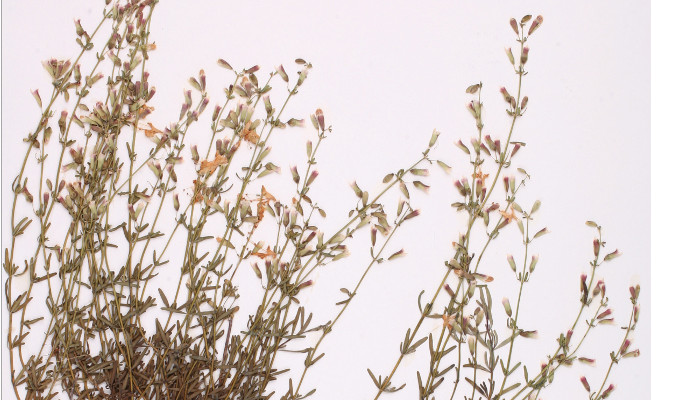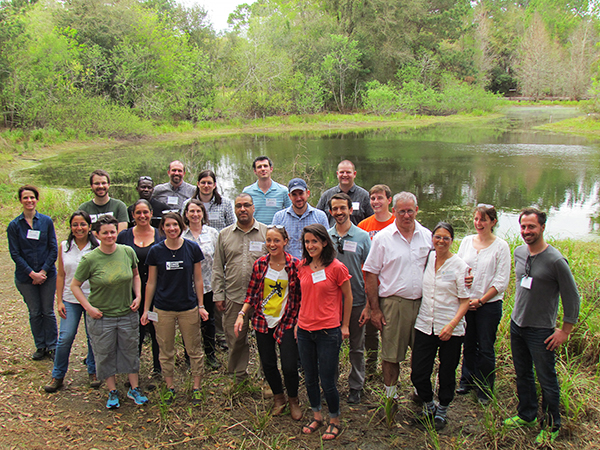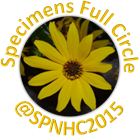Research
Research Spotlight: May 2016
Playing with biological specimen data in iDigBio – limitations and solutions for research
-- Contributed by Shelley A James
Puerto Rico – warm Caribbean seas, high biodiversity, and coqui frogs. iDigBio was invited to NatureServe’s Biodiversity without Boundaries 2016 meeting in April 2016 to share ideas and resources with members of the conservation community....read more here.

Biodiversity without Boundaries 2016: iDigBio meets the NatureServe conservation network
 Conservation. Endangered and rare species. Species distribution maps. Habitat and landscape integrity analysis. Observational data.
Conservation. Endangered and rare species. Species distribution maps. Habitat and landscape integrity analysis. Observational data.
April 2016 Biodiversity Spotlight
Florida Flame Azalea (Rhododendron austrinum)

Image Courtesy of Gil Nelson: Florida Flame Azalea (Rhododendron austrinum) and Eastern Tiger Swallowtail (Papilio glaucus)
Can iDigBio be my research data repository?
Got research data? Need to submit your important data and media associated with biological voucher specimens to a data repository as part of your data life cycle best practices workflow? Are you thinking iDigBio would be the ideal repository for your data?
Although iDigBio is a repository for recordsets of primary biodiversity data of vouchered natural history collections, it is not a "data repository" as defined by most journals. Accepting individual researcher datasets, even those consisting of vouchered, natural history specimen digitized data and media, currently falls outside of the Scope of iDigBio.
Software Carpentry: an iDigBio staff perspective
Ever wondered where to start with analyzing a large biodiversity data set you've downloaded from iDigBio's portal or the iDigBio API? Wondering what software tools are available for cleaning your collections dataset or running some interesting queries? Finding a local Software Carpentry course is an excellent first step.
Research Spotlight: June 2016
Polyploidy in ferns: biodiversity data documenting speciation!
-- Contributed by Blaine Marchant
My research for iDigBio addresses ecological and evolutionary questions by utilizing the enormous dataset provided by digitized natural history specimens from across North America. My current project is aimed at investigating the ecological differentiation of polyploid plant species from their diploid progenitor species....read more here.

Research Spotlight: March 2016
Using herbarium specimen data to understand native mint distribution, evolution, and ecology
-- Contributed by Andre Naranjo
I am a graduate student at the University of Florida, and a member of the Soltis Lab, working on a genus of scrub mints found only in the southeastern United States....read more here.

March 2016 Biodiversity Spotlight
Red-Cockaded Woodpecker (Picoides borealis)

Call for Abstracts for iDigBio Symposium at the Pacific Science Congress 2016
iDigBio is pleased to announce the upcoming Symposium "Data and digital images: progress, tools and scientific need for digitizing Pacific biological specimen collections" at the 23rd Pacific Science Congress: Science, Technology and Innovation, June 13-17, 2016 in Taipei, Taiwan.
We invite presentations from students and professionals about the digitization of natural history collections data in the Asia-Pacific region and the use of mobilized collections data for research.
Call for student abstracts for iDigBio workshop at Island Biology 2016
Research Spotlight: Using Museum Specimens to Refine Models of Species Distribution
Using museum specimens to refine models of species distribution
-- Contributed by Charlotte Germain-Aubrey
Using distribution models are crucial for estimating levels of biodiversity at the landscape level. Museum specimens are a significant source of information for these models as they witness current but also past habitats...read more here.

Biodiversity Specimen-Based Data for Studying Global Change: pros, gaps, and action!
Entomological Collections Network Annual Meeting- ECN 2015

iDigBio at ESA 100: Booth and Ignite Session on Using Biodiversity Data in Research
From Libby Ellwood (iDigBio Post Doc) and Deb Paul (iDigBio Data Specialist) 
SPNHC2015 Symposium: Specimens Full Circle: Collection to Digitization to Data Use
Field to Database (F2DB): field-data collecting trends and 21st century data skills

From Deb Paul, @idbdeb
This 4-day hands-on short course in March investigated current trends in collecting, and focused on best practices and skills development for supporting the collection and sharing of robust, fit-for-research-use data.
3 day collaborative task: create a Data Carpentry genomics lesson with assessment modules
By: Deb Paul, Shari Ellis, Andréa Matsunaga, Blaine Marchant
From Deb
iDigBio Collaborations Enabling Research
To facilitate the study of biodiversity, a number of software products are being collaboratively developed with researchers and projects. These websites, tools, and workflows take advantage of the data being digitized at US and global institutions and made available by iDigBio through our data services. Many other tools and services can be found through the Biodiversity Catalogue.
Looking for research tools? |
How about scientific publications? |
|
iDigBio Webinar: Visualize Your Text Data Using OCR Output
by Deb Paul and Andrea Matsunaga for: Jason Best, Sylvia Orli, William Ulate, Miao Chen, and Reed Beaman
Recorded Webinar:Visualize Your Text Data Using OCR Output
00:00-15:23 Overview (Deb Paul)
15:24-29:13 Live DEMOs (Andrea Matsunaga and Jason Best)
29:14-55:57 Discussion






